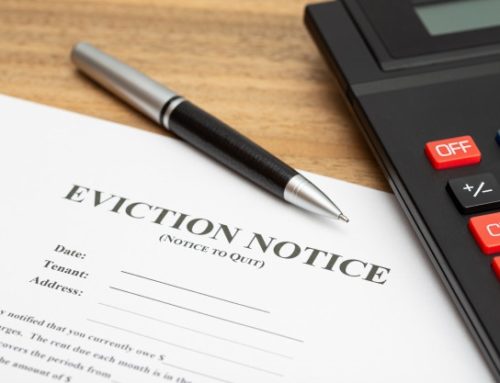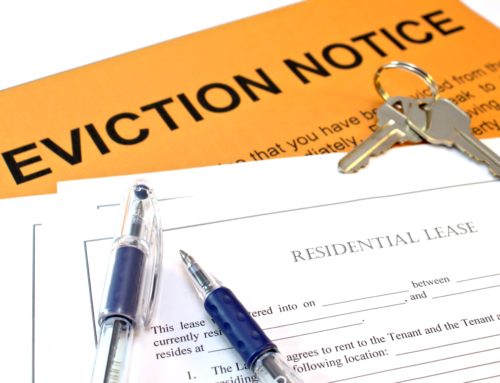A responsible tenant knows how to comply with the tenancy rules imposed by the landlord. It includes the importance of paying their rent on time. Failure to do so may lead to termination of the tenancy contract and eviction. As the property owner, you have legal rights to evict tenants for non-payment of their rent.
Landlord-tenant laws may vary from state to state. In Texas, a landlord is obliged to terminate the tenancy agreement first before evicting a tenant. The landlord-tenant relationship is addressed under the Texas Property Code. The state law requires you, as the landlord, to give a written notice first before you evict a tenant. In case the tenant refuses to move out even after receiving the notice, then you will be forced to file an eviction lawsuit which is also known as forcible entry and detainer lawsuit. It is advisable to consult a competent North Richland landlord attorney to help you file the case.
In Texas, the due date of the rent is usually on the first day of each month. It does not matter whether it falls on a holiday or a weekend unless certain terms are indicated in the rental or lease agreement. For instance, you can state in the rental agreement that if the due date falls on a holiday or a weekend, then the payment due date will be moved to the next working day.
If the rent is paid after the due date, it is considered “late”, unless otherwise agreed to in the rental or lease agreement. For example, in case the tenant fails to pay the rent on the first day of each month, then the second day shall be considered as the first day of late payment.
 In other states, landlords are not allowed to begin the legal process of eviction before giving a chance to tenants to either vacate the rental unit or settle the late rent fees. If the rent was paid by the tenant, the termination process should not be pursued. But in Texas, giving second chances to accept late payment from the tenant is only an option, not a strict requirement, unless it is stated in the terms of the rental or lease agreement.
In other states, landlords are not allowed to begin the legal process of eviction before giving a chance to tenants to either vacate the rental unit or settle the late rent fees. If the rent was paid by the tenant, the termination process should not be pursued. But in Texas, giving second chances to accept late payment from the tenant is only an option, not a strict requirement, unless it is stated in the terms of the rental or lease agreement.
A landlord who chooses to accept late rent payment must remind the tenants of the final due date of the payment. You can demand your tenant to either pay off the rent amount or move out of the property according to the date indicated in the notice of eviction. If you did not send any proper notice to your tenant regarding owing rent before sending an eviction notice, then your tenant will have no other option aside from moving out.
According to Texas law, a grace period of two days must be provided by the landlord before charging any late fees to a tenant. However, pursuant to state law, the landlord is not required to provide any grace period to the tenant before giving the eviction notice for missed rental payments.
When you give your tenant an eviction notice, they have to choose between paying your rent within three days (including weekends and holidays) or leaving the property. The counting of three days will start from the same date that they receive the notice.
The eviction notice should be in the form of writing that includes the following details: the date when the eviction notice was given to the tenant, name and present address of the tenant, reason for the notice, a statement specifying that the tenant is given a three-day grace period before being evicted (specify the time and due date by which the tenant shall vacate the rental property), a provision that the landlord can file an eviction lawsuit in case the tenant refused to move out, and a detailed statement indicating how the eviction notice is served to the tenant.
It is crucial to write all the key information and specific dates in an eviction notice, otherwise, it will be considered invalid and the three-day notice period will not be imposed. A qualified North Richland landlord lawyer can help you write a complete and detailed eviction notice.
According to Texas Property Code, there are four ways how landlords can serve the eviction notice to tenants. You can personally hand it over to your tenant or another tenant (above 16 years old) living in the same rental property. If you have the property key and can enter the property premises legally, the notice can be posted inside the main door. It can also be served to the tenant through regular mail, certified mail, or registered mail, but you have to request a return receipt. In case all the previous options are not possible, you can securely post the eviction notice on the main entrance or any visible part of the rental property.
If the tenant chooses to pay the rent in three days, the eviction process will not be pursued by the landlord. On the other hand, if the tenant moved out within three days but refused to pay rental fees, you can use the security deposit instead to cover the unpaid amount of rent. However, if the deposit is not enough to settle the rental payment, then you can file a lawsuit against your tenant.
A tenant who fails to pay the rent within three days and refuses to leave the property can be sued by the landlord by filing a summons and complaint or a forcible detainer lawsuit with the court. As the landlord, you must not participate in “self-help” methods (shut off utilities or change the locks). You need to follow the legal procedures in filing a forcible detainer case.
Running a property rental business requires you to have sufficient knowledge regarding the landlord-tenant laws (including tenant rights in withholding rent or illegal eviction procedures). For legal help, do not hesitate to consult our experienced North Richland landlord lawyers at Girling Law, PLLC. Our lawyers will guide you on your roles and responsibilities as the landlord. This will help you have a good landlord and tenant relationship guided by the laws.





